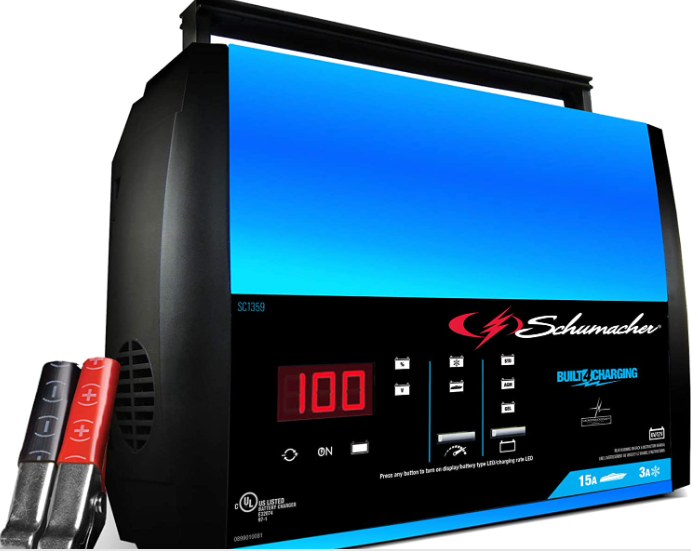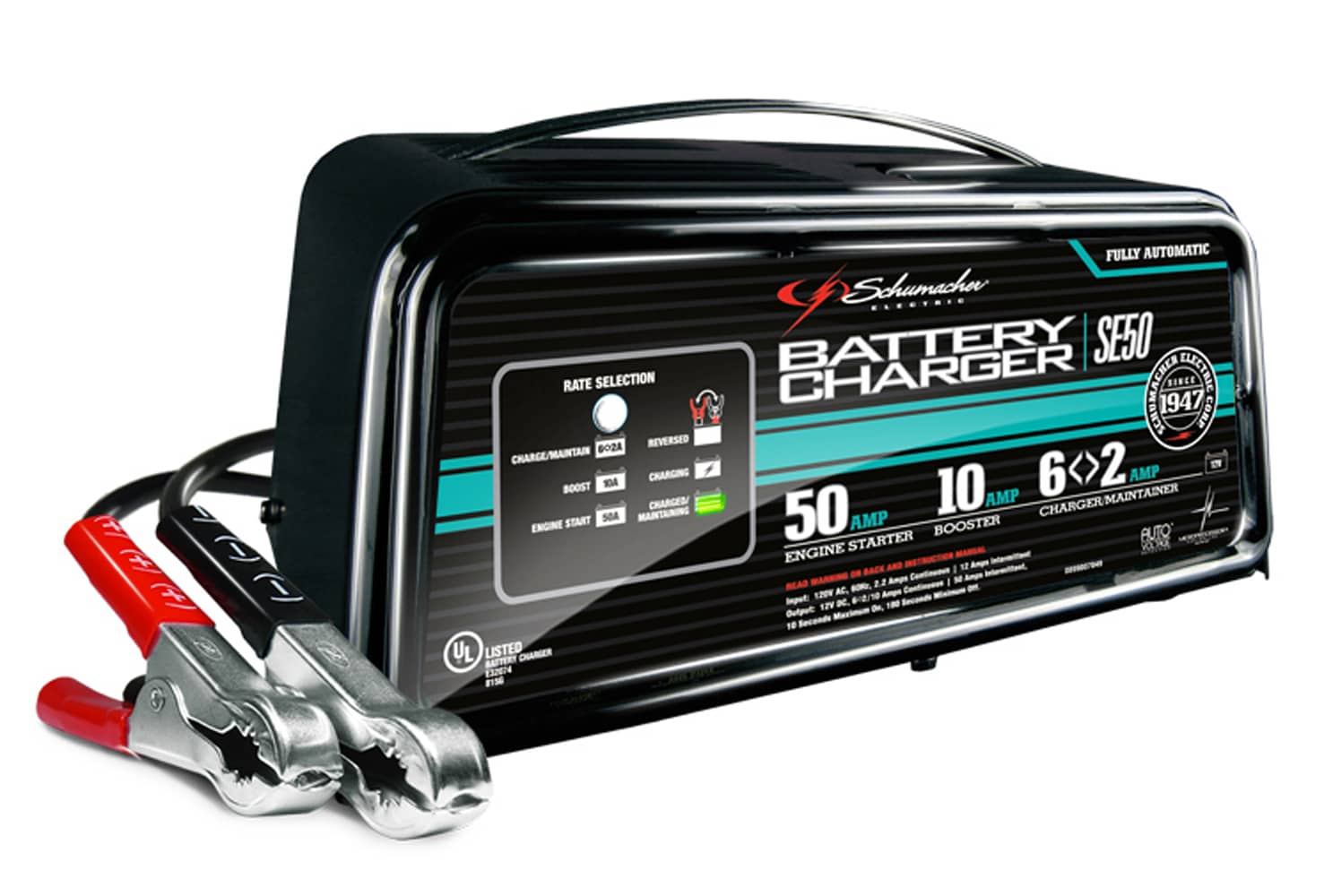If used correctly, a high-quality Schumacher battery charger can extend the life of a car battery. Sulfation is a process that causes lead sulfate crystals to grow up on the surface of a battery. Sulfation can be avoided by keeping your battery charged on a consistent basis.
Chargers for automobile batteries connect to the terminals of the battery and to an electrical outlet in the vehicle’s primary power supply. They can be used to maintain a car battery that is not currently being utilized or to charge a battery that has gone down to a low state of charge.
There are primarily two categories of battery chargers, which are as follows:
- Standard Chargers
- Smart Chargers
Standard Chargers
Chargers that are considered standard have a conventional appearance, user interfaces that are straightforward, and few additional functionalities. You won’t get the same level of advanced functionality that you would find in a smart charger with them, despite the fact that they might be a more cost-effective solution.
Smart Chargers
Smart chargers are more advanced than traditional chargers and can both charge your battery and serve as a permanent connection for maintenance charging.

They come with a variety of additional features and offer numerous charging phases for more efficient charging, both of which serve to increase the lifetime of a battery.
What Do They Do?
Chargers all deliver electricity to your car’s battery, but they serve three distinct purposes. Make sure the charger you buy can handle your needs!
- Maintenance charge: Also known as “trickle” charging, maintenance charging supplies a small amount of current to your battery to maintain it healthy while being stored for long periods of time.
- Conventional charging: This sends a small amount of power to your battery to charge it up. To fully charge a battery, it takes anywhere from 6 to 24 hours, but usually around 10 hours.
- Engine start: This is the same as jump-starting your vehicle.
Which One Do I Need?
There are only a few things to consider when choosing a battery charger if you know what type of charging you want to do:
- Engine size: What is the size of your engine? A larger engine necessitates a larger battery and a stronger charger! As a result, you must determine whether your charger is appropriate for the size of your engine.
- Type of battery: What kind of battery do you have? Lead-acid batteries are compatible with battery chargers if they are worthy.
- Features: What are you searching for in terms of features? Do you want an easy-to-read digital display? Maybe a winter mode? Are there any specific charging cycles? Consider your requirements to assist you to limit down your choices.
Wrapping Up
Make sure you keep all the aforementioned factors in your mind to end up buying a Schumacher battery charger that will last as long as possible. To learn more about this topic visit our website.

